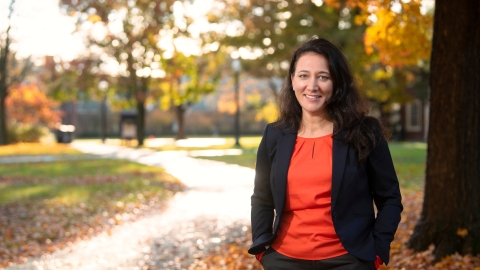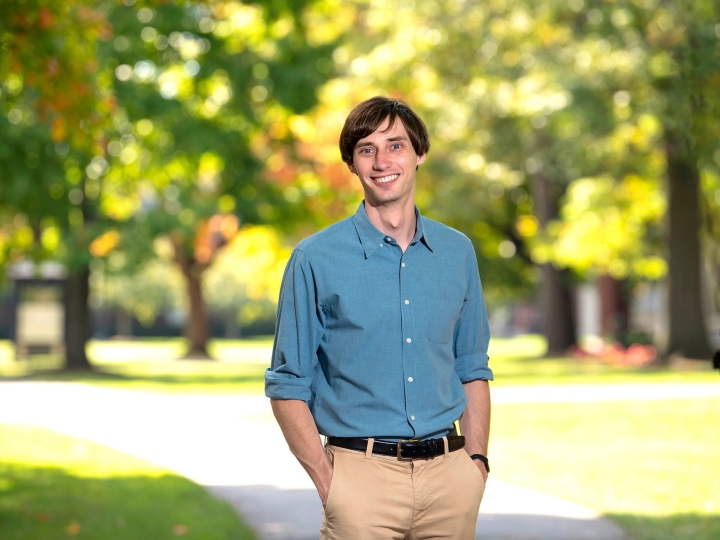
Erin Jablonski, Chemical Engineering
July 31, 2019
If you’re going to learn, you have to have the authentic experience.
In a particularly memorable chemical engineering class, Professor Erin Jablonski brought in an air intake manifold for her students to test, then watched as the men reached for tools while the women stood back with their notebooks. The Bucknell University professor swiftly responded by instructing her students to take turns with the equipment. "If you're going to learn, you have to have the authentic experience," she says.
As Jablonski pursued her own education and career in a male-dominated field, she has paid careful attention to factors that could undermine student success.
"There are so many ways students can feel that they lack academic capital," she says. "What happens in education that makes a student feel she or he doesn't belong?"
She points to childhood influences such as caregiver interest, social and media messaging, and flat-out lack of affirmation as educational hurdles. It was this interest in who is, or isn't, "seen" as an engineer or scientist that inspired her work on K-12 STEM education.
In 2008, Jablonski established Bucknell's Engineering Camp, which enrolls nearly 200 middle- and high-schoolers each summer, with a focus on access for students from underrepresented backgrounds. Under the guidance of Bucknell faculty and engineering students, the campers conduct hands-on experiments in classrooms and laboratories.
"We seek students from all walks of life," says Jablonski. "I want kids from Detroit or inner-city Baltimore to understand that they can be successful on a college campus, ask hard questions, get taken seriously and belong."
Jablonski broadened her scope in 2016 to co-found the Lewisburg Children's Museum (LCM), a place where children and their parents can experience imaginative, educational play. With its interactive nature and proximity to campus, LCM provides Bucknell students a wealth of opportunities for design projects, service-learning and civic engagement. "They’ve designed exhibits and activities and spent time with local kids, often learning together," Jablonski says. "They see that learning is fun if it's done right."
Her talent for bringing ideas to life infuses her research, which focuses on the design and fabrication of micro- and milli-fluidic devices that have the potential to deliver drugs in hydrogel form through implants in the body. To help students develop their own ability to think like entrepreneurs, she teaches a course called Should We Start This Company?, which guides them from concept to business plan to implementation.
"To embody the entrepreneurial mindset is to see a thing that isn't, but should be, and make it so," she says.

